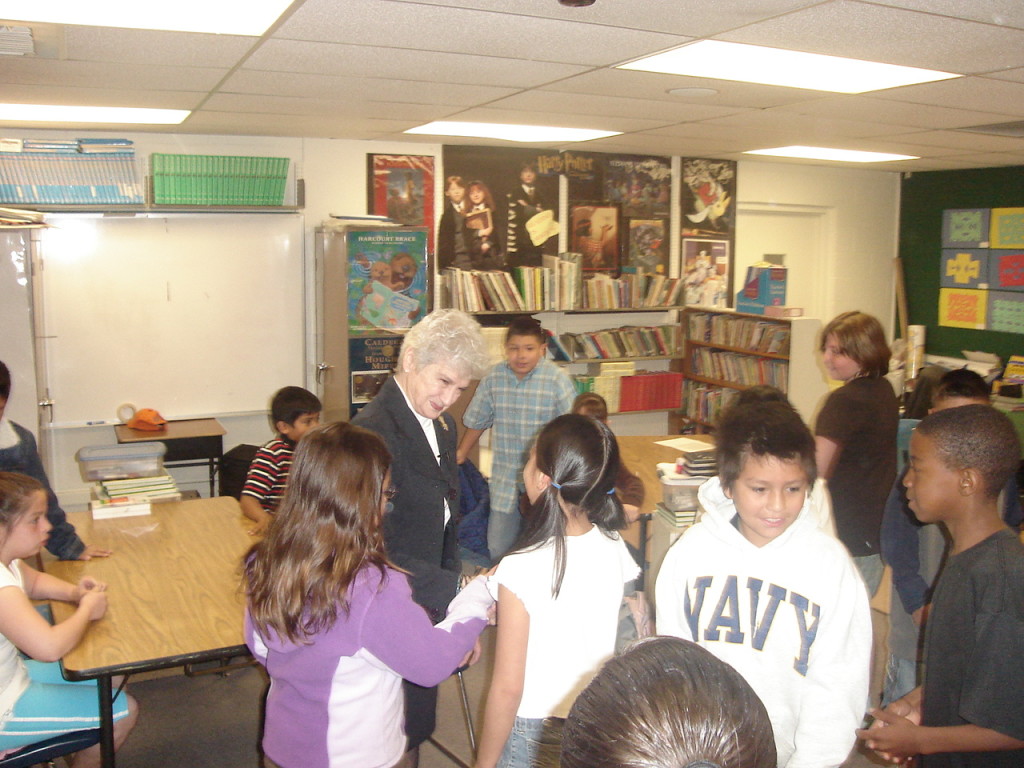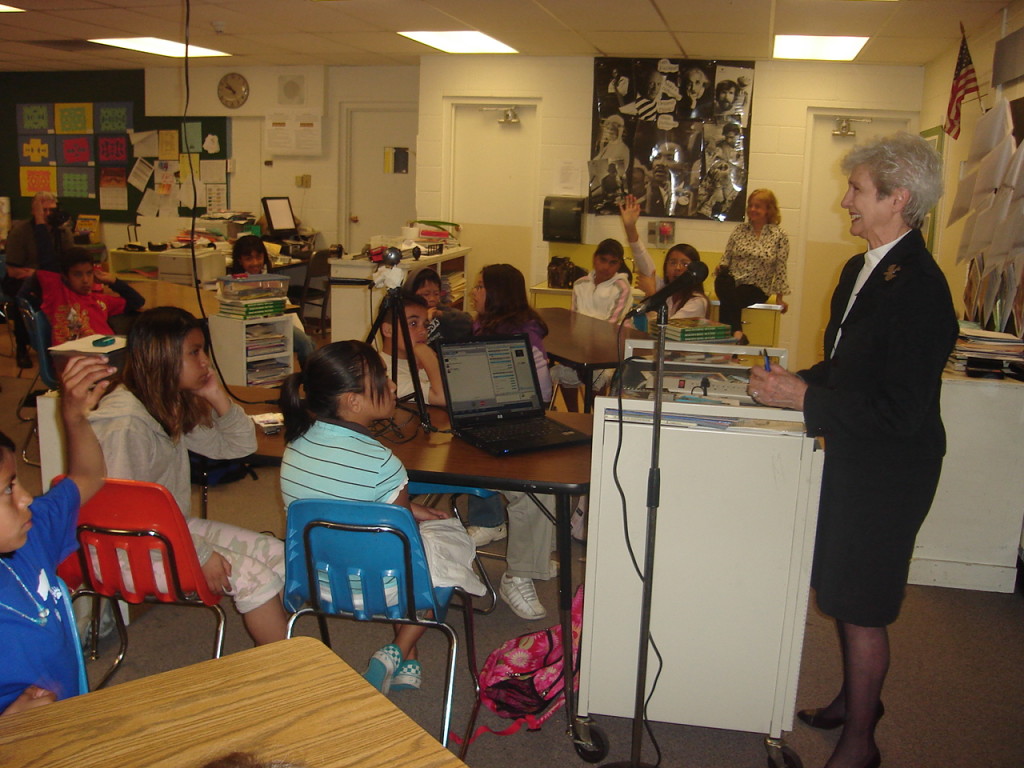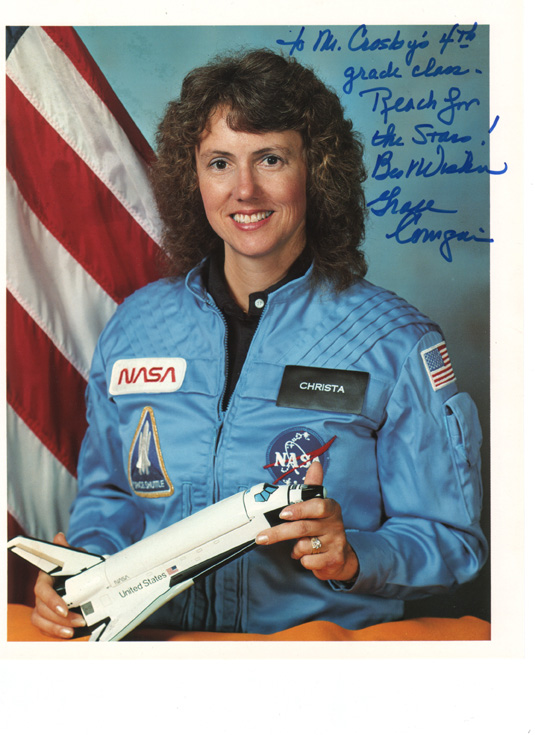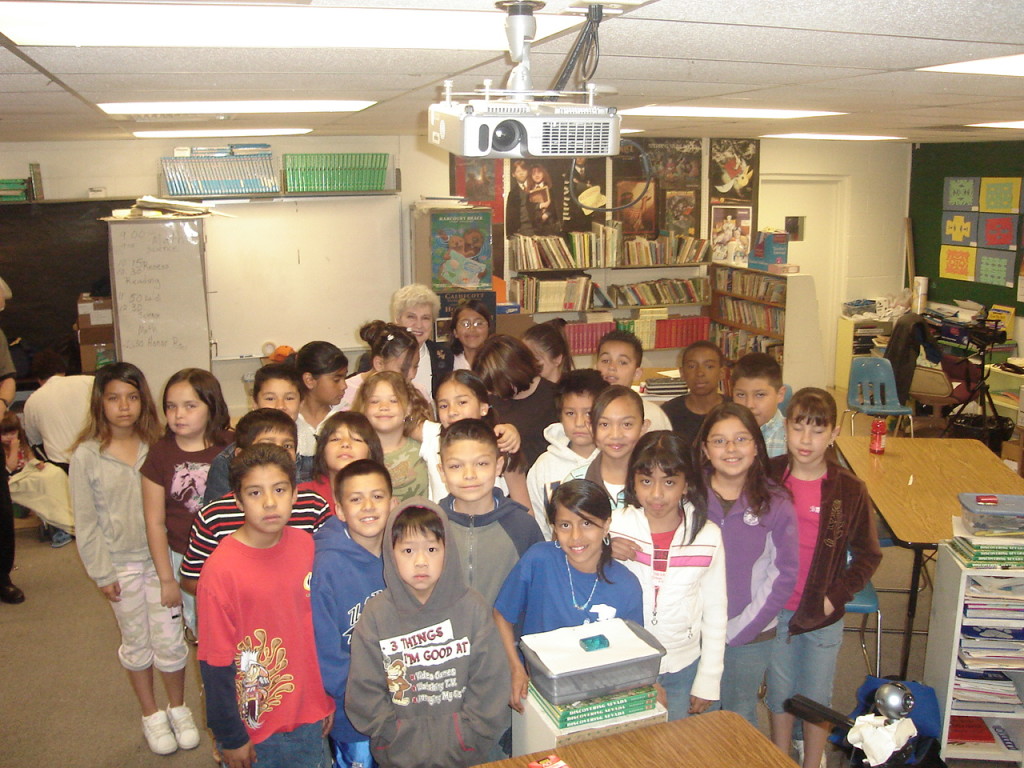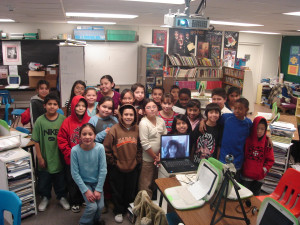NOTE: The pending blizzard hitting the central US and soon the east coast made me think of this post from 2 years ago. It was written in response to the H1N1 flu epidemic that was hitting at the time – and the experience this last week at the EDuCon conference in Philadelphia when students came to school even after it was cancelled due to heavy snow to help run and participate in the conference . Ironically I could not make this claim now … that I could run class from home if school was cancelled… even though more of my students have internet at home now because we have just not learned as much about being connected as my last class (partly my fault for allowing things/policies to take me away from what I feel strongly about). I’m trying hard to change that situation. This really could work well. Here’s the post from May 2009:
Think of all the learning time being lost by those students already on leave because of theH1N1 flu issue. What if this did become more widespread and we did have many students out of school for a week or more? My school district has already informed us that if even 1 student is diagnosed at our school with H1N1 then they would close that school for 5 to 7 days AND those days don’t have to be made up at the end of the school year. That’s a lot of lost learning time AND lots of free time on the hands of kids that may lead to other issues.
My students are at a bit of a disadvantage over others simply because not all of them are connected at home, but if I had time I could probably make this work for 60 to 80% of them if they were sent home due to a flu outbreak or other reason in the future. My wife’s students are 100% online at home, so think of this in terms of whatever your situation might be.
What could I make work? I could make school happen for my students from home. How?
Well first all my students blog, so I could leave them assignments on our class blog for them to research, write about and then submit to me to check and even comment back to them about. In fact just using their blog I could carry on a conversation about their work on almost any topic. I could even post math problems for them to do, science, social studies … really almost any subject. I could post photos on our Flickr account (and elsewhere), videos for them to watch, links to web pages of all kinds on any subject for them to read or interact with and then report to me about their learning in a way where I can interact with them about it. Oh, and they could do the same, posting video or photos they’ve taken (maybe just with their or a parents cell phone), to demonstrate learning or to build content to present online to the rest of us. And “US” doesn’t just have to be our class, others could join in or at least view and comment on our work.
I could even provide a field trip or guest speaker from anywhere in the world via Ustream or Mogulus and they could interact about it in the chat – ask questions, and then write about it afterwards and even have discussions.
Using Google Docs I could even enter a document with a student or even a group of students to work on or ask questions about or get feedback about.
Also we could collaborate on any of the above activities along with other students anywhere in the world.
Using the links we already have on our class wiki page I can have them visit different free online math, language, science, social studies activities and more … and add new ones as needed.
All for free, using tools students already know how to use. And understand, we could do this easily – including collaborating with other students because we already do this, we already have the contacts and network with other students and teachers set-up. We already blog and use Google Docs and Skype and wikis and more with students all over the world. We are ready to go.
Now I have just scratched the surface here, applications like Ning, Moodle, Elluminate and so many more could further facilitate what I described above.
So time spent at home instead of school could be just about as productive as being in school – I assume I’d still be getting paid even if school has been closed for the flu (or other reason), students have something productive to do, aren’t spreading germs, do you see a downside? – I’m not.
I hope others will further elaborate how they see this working as comments. I really held back on ALL that is possible here so have at it!
Too bad school couldn’t be more like this all the time!
Learning is messy!

